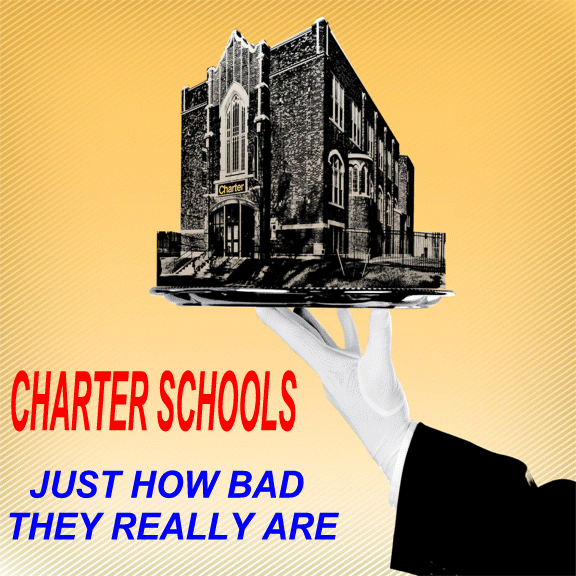Charter Schools Just Bad Policy?
It is no secret that charter schools coast to coast are rife with fraud, waste, corruption, and racketeering. This is closely related to the fact that charter schools annually siphon billions of public dollars from public schools that serve 90% of the nation’s youth, thereby undermining the ability of public schools to educate millions of poor and low-income minority students.
Thousands of investigative reports, news articles, blogs, and scholarly books and articles have over-documented this relentless assault on public education, the economy, society, and the national interest by charter schools. No other sector or institution comes close to the financial malfeasance plaguing nonprofit and for-profit charter schools.
Charter schools are also riddled with many other well-documented problems, including very high teacher, student, and principal turnover rates; poor academic performance on a broad scale; union-busting; limited transparency; a tendency to increase segregation; and a long-running propensity to cherry-pick students, to name just a few other problems.
Oftentimes, however, it is argued that “bad charter schools” are essentially the result of “bad policy.” And since “bad policy” is what allows so many charter schools to be so rotten, the implication is that if policy were just better, more intelligent, more thoughtful, more humane, more technically sound, more enlightened, more rational, better crafted, and less bad, then charter schools would be great and all would be well. Such a view also uncritically presumes that the existence of charter schools is legitimate to begin with and that there is nothing inherently problematic about charter schools: we just need “good charter schools” that are the result of “good policy” made by “good people.”
The core problem with this ahistorical view that renders “good” as a meaningless universal abstraction, is that it does not recognize that “bad policy” is conscious and deliberate class policy—class war, to be precise.
Policy is never neutral or apolitical. Policy-making never takes place outside CONTINUE READING: Charter Schools Just Bad Policy? | Dissident Voice

